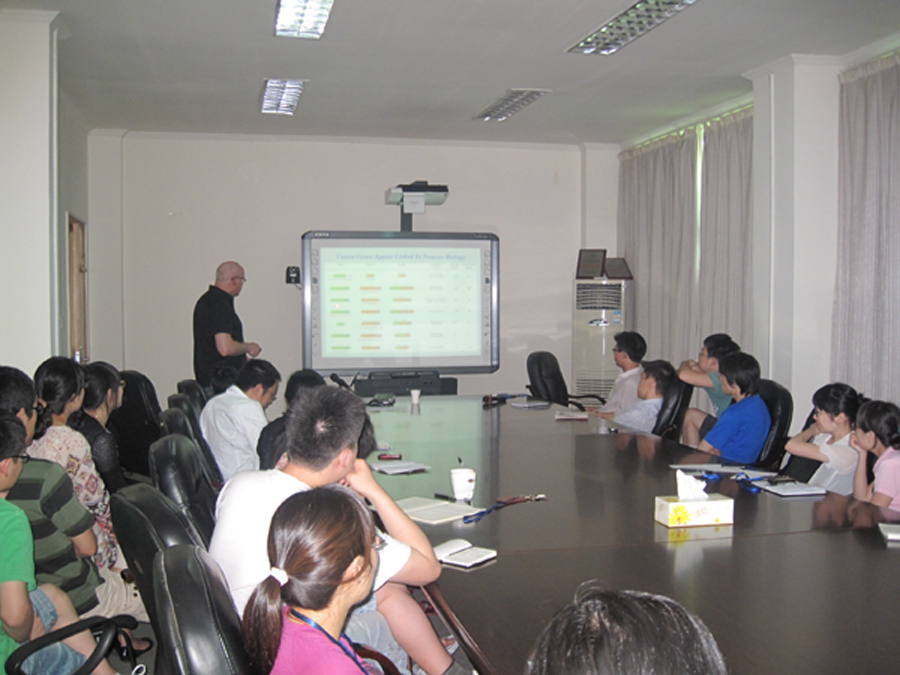5月10日下午,应我院系统生物学平台林标扬教授的邀请,Vancouver Prostate Centre研究所资深研究员、加拿大UBC大学Colin Collins教授再次到访我院,就双方合作的科研项目进行了深入探讨,并以“Next Generation Sequencing and Translational Genomic Oncology”为题做了精彩报告。
Collins教授讲述了如何应用新一代测序技术及基因芯片技术,在基因组和转录组水平鉴定具有肿瘤特异性的拷贝数差异、基因熔合以及可变剪切体,同时以此作为药物靶点及诊断预测指标。Collins教授还介绍了其科研成果包括他在手术后易复发个体的研究发现的基因熔合现象等。报告会上大家就这些研究成果踊跃提问,Collins教授细心解答,Collins教授严谨的学术作风、幽默的演讲风格给在场师生留下了深刻印象。

会后,应广大师生的强烈要求,就大家所关心的研究领域,Collins教授与研究生举行了研讨会,研讨会上Collins教授对研究生开展的相关课题提出了很多建设性意见。他指出,林标扬教授在在高通量测序、肿瘤生物标志物开发方面开展了大量工作,近年来他和林标扬教授的团队合作得非常愉快,近期林教授的一位研究生将去UBC开展博士后工作。他期望今后能开展更多不同形式的交流和合作。
Colin Collins教授简介:
Professor, Dept. of Urologic Sciences, UBC. Senior Research Scientist and Co-Director, Microarray Facility, Vancouver Prostate Centre.
Dr. Collins is a senior scientist at the Vancouver Prostate Centre and a Director of The Microarray Facility. In addition, he is an associate adjunct professor at the University of California San Francisco (UCSF) Helen Diller Family Comprehensive Cancer Center and a visiting scientist at Lawrence Berkeley National Laboratory. He has held positions at Lawrence Livermore National Laboratory and Lawrence Berkeley National Laboratory at UCSF. His current research is best described as translational genomics where mathematics, genomics, computer science, and clinical science converge in diagnostics and therapeutics.
His work as a member of the UCSF Prostate SPORE has resulted in identification of a suite of DNA based biomarkers that show promise for predicting a patient’s risk of progression and metastasis. Dr. Collins invented and patented End Sequence Profiling (ESP) the forerunner of modern paired-end sequencing. ESP is a sequence-based method for determining the physical structure, complexity, and mutation load of tumor genomes and for direct detection of fusion genes and transcripts. Dr. Collins is now integrating array-based technologies and next generation sequencing technologies to radically cut costs and make very large-scale tumor genome projects and personalized oncology a reality in the near term.

